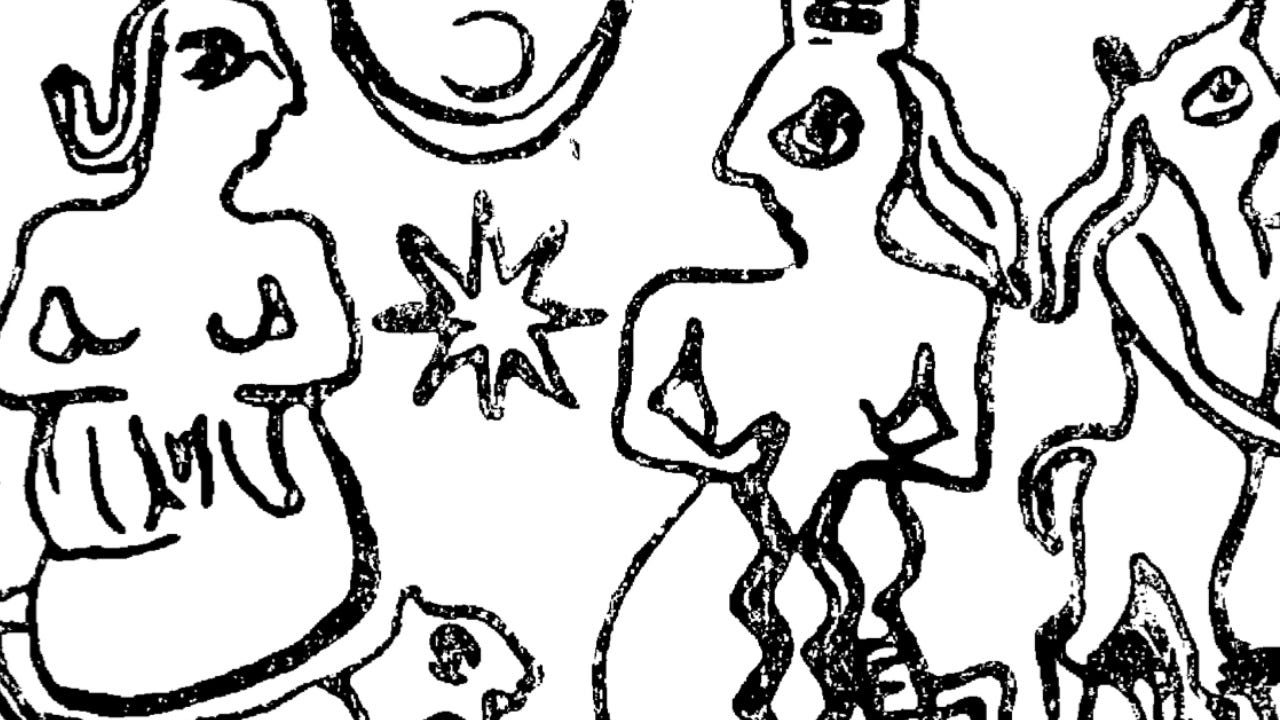A heartbreaking, timeless fate
A couple of weeks ago, I had no idea the Epic of Gilgamesh even existed, a classical text from Mesopotamian civilization. As life would have it, I had to read it1, and today, thanks to that reading, I write this reflection.
To begin with, the poem recounts the adventures of Gilgamesh and his friend Enkidu, with clear allusions to Babylonian society’s structure, its relationship with the natural environment, its belief systems, and its polytheistic religion. Despite the poem’s beauty, what struck me most was the weight of fate upon the main character. While we are familiar with this supernatural phenomenon in the form of oracles from Greek texts, in Gilgamesh we find a timeless story that touches the very fibers of our current reality.
“From his conception, Gilgamesh had a radiant destiny”
(Tablet I, Column II, Line 45)
That’s how the poem begins. Destiny, that absolute force that defines our lives. Gilgamesh’s destiny was to be a hero remembered for his deeds and for what he built in Uruk. But how would the poem of a boy born in Palestine begin, even if he isn't yet aware enough to recognize himself as Palestinian? Perhaps like this:
“For me there is no joy. For me, the wretched one, fate has torn me apart”
(Tablet X, Column V, Line 30)
The fate of being born in a sacred land, the fate of being born in a divided land, the fate of being born in a land at war. Although there was a transition from Babylonian polytheism to Judaic and Muslim monotheism, religious sacrifices have not ceased, because:
“When the gods created humanity, they imposed death upon it;
Life, they kept in their own hands”
(Tablet X, Column II, Line 25)
Perhaps the reason behind today’s excessive sacrifices is no longer to appease the wrath of the gods, but rather to perpetuate those in power, and at the same time, continue the supremacy of one religion over another, and the underlying political imposition.
This ties back to the core of Gilgamesh’s obsession: death. Despite being two-thirds divine and one-third human, he feared. Witnessing the sickness and death of his beloved friend Enkidu filled him with terror, a terror that led him on a journey to the ends of the world in search of the secret to immortality. After holding in his hands the plant that grants eternal youth, he loses it and returns to Uruk as a human, and as a mortal.
Maybe for each side of the conflict, this war is nothing more than a heroic feat in pursuit of immortality, or perhaps it’s a modern version of the great flood decreed by the gods so a new world may be born. What is certain is that while bombings, mistreatment, and hunger do not cease, those who lose someone can do nothing but cry, like Gilgamesh, for the loss of Enkidu:
“It was not Rabisu of Nergal,
The ruthless one, who took him.
It was the Underworld who took him!
He did not fall on the battlefield of the brave.
It was the Underworld who took him!”
(Tablet XII, Line 50)
Because the story is the same, only the characters change. Because “how weak is fickle humanity!” Gilgamesh reflects the core of Mesopotamian civilization: a humanity rendered insignificant before a divine and religious world. Today’s reality lays bare the vulnerability of human beings in the face of dominant belief systems. It seems that, just as Gilgamesh lost the plant, humanity has lost its agency; only fate remains.
consulted version: Silva Castillo, J. Gilgamesh o la angustia por la muerte: poema babilonio / direct translation from Akkadian, introduction and notes. 2000. El Colegio de México, Centro de Estudios de Asia y África. Mexico. 230 pp. Available at: https://somacles.wordpress.com/wp-content/uploads/2018/07/gilgamesh-ed-jorge-silva-castillo.pdf



